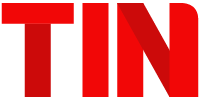In the 1980s, a paradigm shift in the way people made payments occurred: the switch from cash to EFTPOS.
Worldline (then Paymark) was the first company – and New Zealand the first country – to provide an electronic payment option at such scale. Kiwis are justifiably proud of this world-first innovation. Thirty-five years on, Worldline today is providing new innovative solutions to the new payment problems of the 21st century – and banking on them being just as popular.
Open banking is the next quantum leap.
 In 2016, Worldline introduced the first open banking product to NZ with Online EFTPOS, and in 2022 brought the last of the four major banks on board with the solution. Now, approximately 90% of Kiwis can pay with this option.
In 2016, Worldline introduced the first open banking product to NZ with Online EFTPOS, and in 2022 brought the last of the four major banks on board with the solution. Now, approximately 90% of Kiwis can pay with this option.
Julia Nicol, Head of Public and Regulatory Affairs at Worldline explains how it works:
“This product is different to many other open banking innovations as it initiates and processes the actual payment. We make a payment from your bank account to the merchant’s bank account happen directly, and it doesn’t go via the international card companies like Visa or Mastercard which attract additional fees, that you, as the consumer, often end up absorbing. You also do not hand over your internet banking credentials – you simply select your bank, input your phone number, and approve the payment in your banking app.”
Several major merchants in NZ – including the likes of Auckland Council, PB Tech, Chemist Warehouse, and school payments system Kindo – offer Online EFTPOS as an option, confident that the majority of their customers can use it.
Worldline’s solution offers a true alternative to the ubiquity of Visa or Mastercard, and Julia Nicol is passionate about the power of NZ’s fintech innovation capability for facing down those Goliaths.
“We’re a small country, but there are great products, platforms, and APIs built here by and for New Zealanders, which can help move us all forward. Consumers need to have choice about how they make payments.”
Currently Online EFTPOS is only available in e-commerce settings, but the next innovation on the horizon will bring open banking products back to where Worldline started: in-store retail settings.
Worldline’s view is that more choice in how merchants accept contactless payments will create more affordable payments for all. Their target is not just a win for consumers who can finally stop paying that extra 2.5% in card fees, but also for merchants and banks: a win-win-win.
Nicol tells us the next frontier is digital identity authentication – or Auth0 – solutions.
“This is about adding simple digital identity questions within transactions that provide a ‘yes’ or ‘no’ answer. For instance, ‘Are you over 18?’ can be confirmed without sharing the date of your birthday.”
“People are often required to hand over more information than they really need to and this oversharing of sensitive information has got to stop, as it creates a system ripe for what’s often called a scam but what, in reality, is complex and professional fraud.”
Worldline highlights that some open banking solutions such as screen scraping, which requires you to enter your banking login details to a third-party website, leave the door open for data breaches.
Nicol also stresses that the systems that Worldline is investing in and building up will allow for the secure transfer of information, whether that’s payments, digital ID, health information, or even loyalty data.
“A lot of solutions don’t have the same security as Online EFTPOS, and make it normal for people to share information they shouldn’t. You can’t create a system and then blame people for doing what they’re told – it’s outrageous.”
One safety solution that Worldline is working on next is Confirmation of Payee (CoP). This technology cross-references the name of an account holder and an account number, making sure that they match before a consumer makes a manual bank transfer.
After one bank introduced CoP in the Netherlands, it reported a 70% drop in fraud. Most Dutch banks have had this technology since 2018, and it is also widespread in the UK, France, and Italy. It has also been a legislative requirement for Europe since 2022. SurePay is the market-leader in this tech and Worldline is working on bringing this to NZ in 2024.
As Julia Nicol tells us, “Speed shouldn’t come at the expense of safety. Trust is critical when you’re dealing with people’s financial and personal information. But we do need to move faster as an industry. We’re only as fast as our slowest bank, and we need to get these solutions into Kiwis’ hands faster.”

